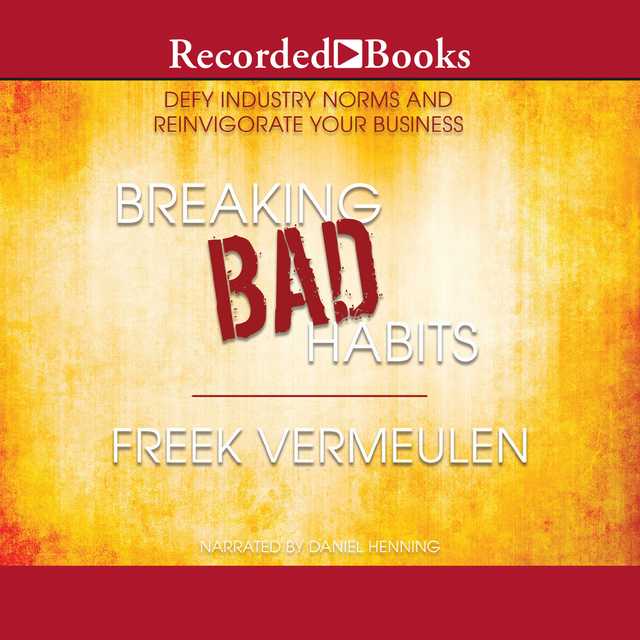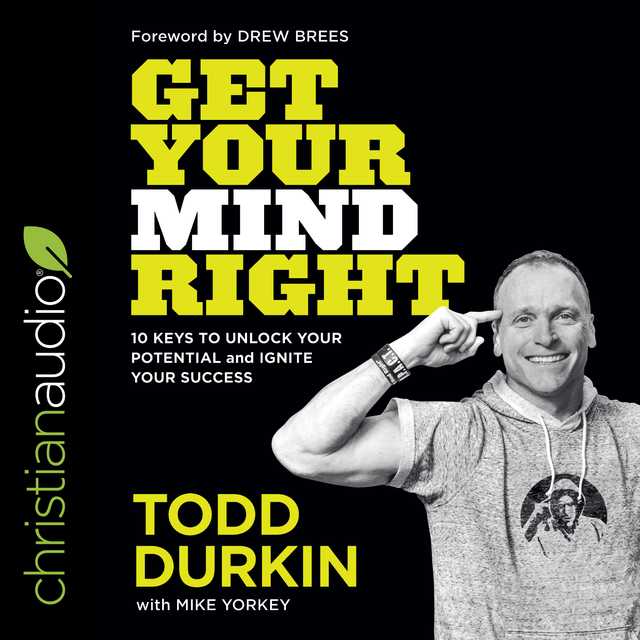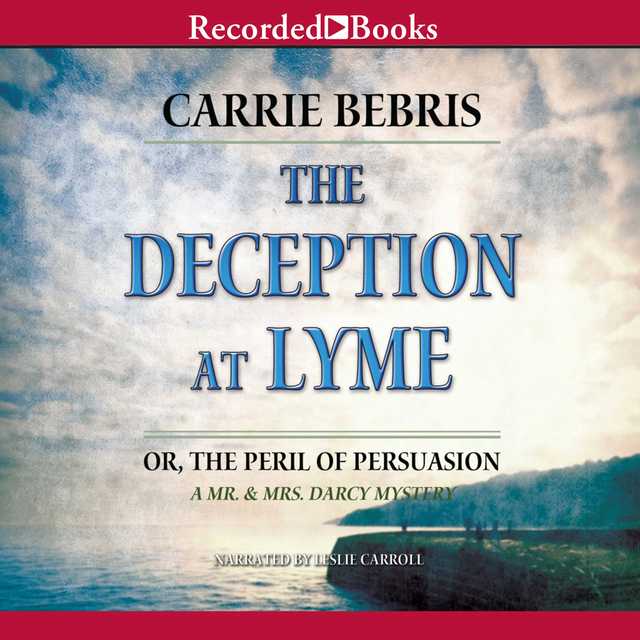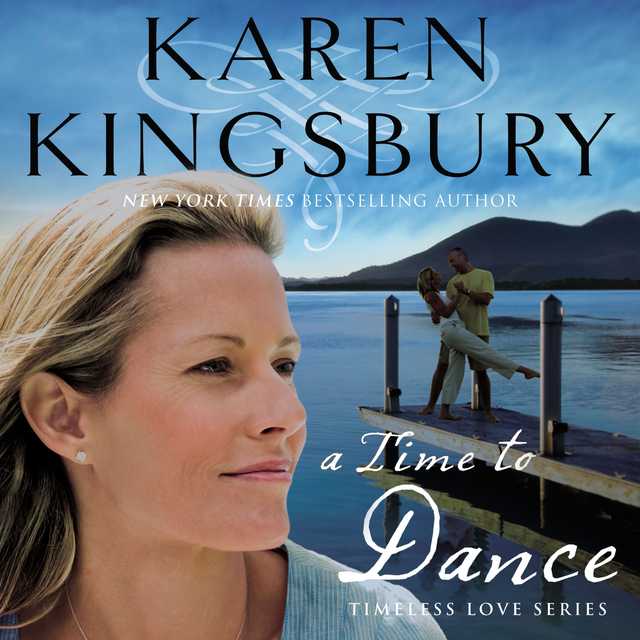Ultralearning Audiobook Summary
Future-proof your career and maximize your competitive advantage by learning the skill necessary to stay relevant, reinvent yourself, and adapt to whatever the workplace throws your way in this essential guide that goes beyond the insights of popular works such as Extreme Productivity, Deep Work, Peak, and Make It Stick.
Faced with tumultuous economic times and rapid technological change, staying ahead in your career depends on continual learning–a lifelong mastery of new ideas, subjects, and skills. If you want to accomplish more and stand apart from everyone else, you need to become an ultralearner.
Scott Young incorporates the latest research about the most effective learning methods and the stories of other ultralearners like himself–among them Ben Franklin, Judit Polgar, and Richard Feynman, as well as a host of others, such as little-known modern polymaths like Nigel Richards who won the World Championship of French Scrabble–without knowing French.
Young documents the methods he and others have used and shows that, far from being an obscure skill limited to aggressive autodidacts, ultralearning is a powerful tool anyone can use to improve their career, studies, and life. Ultralearning explores this fascinating subculture, shares the seven principles behind every successful ultralearning project, and offers insights into how you can organize and execute a plan to learn anything deeply and quickly, without teachers or budget-busting tuition costs.
Whether the goal is to be fluent in a language (or ten languages), earn the equivalent of a college degree in a fraction of the time, or master multiple skills to build a product or business from the ground up, the principles in Ultralearning will guide you to success.
Other Top Audiobooks
Ultralearning Audiobook Narrator
Scott Young is the narrator of Ultralearning audiobook that was written by Scott Young
About the Author(s) of Ultralearning
Scott Young is the author of Ultralearning
More From the Same
- Publisher : HarperAudio
- Abraham
- American Gods [TV Tie-In]
- Dead Ringer
- House of Sand and Fog
- Prey
Ultralearning Full Details
| Narrator | Scott Young |
| Length | 7 hours 46 minutes |
| Author | Scott Young |
| Category | |
| Publisher | HarperAudio |
| Release date | August 06, 2019 |
| ISBN | 9780062945143 |
Subjects
The publisher of the Ultralearning is HarperAudio. includes the following subjects: The BISAC Subject Code is Business & Economics, Careers, General
Additional info
The publisher of the Ultralearning is HarperAudio. The imprint is HarperAudio. It is supplied by HarperAudio. The ISBN-13 is 9780062945143.
Global Availability
This book is only available in the United States.
Goodreads Reviews
Ian
August 08, 2019
Ultralearning is “a strategy for acquiring skills and knowledge that is both self-directed and intense.” The book is Young’s clear, concise, and well-written explanation of how to master this strategy. The excellent chapter on metalearning alone is worth the price of the book and the rest is full of insights and tips that are noteworthy and practical. Get it, read it, and start putting ultralearning principles to practice in your own life.
Scott
August 19, 2019
Most books on learning are narrowly focused on academic tests, but this book actually helps you learn skills you can use in real life. And I think learning to learn is one of the most important things we can do in life.Some good learning principles from the book:Directness: the best way to practice is to do very thing you want to do. Instead of reading about painting, actually paint. Instead of taking a test on vocabulary, actually practice speaking the language you're trying to learn. Instead of writing papers on coding, create a program. Direct application is the best practice arena.Retrieval: When asked, people say that good reviews make them feel like they are more prepared and will remember more. But it actually isn't the best for locking things in our memory. Instead, pushing your brain to remember things is better than reviewing it more often--even when we can't get the right answers. The hard work of racking our brains for the answer (which doesn't feel as good as reviewing) is very productive.Meta-Learning: Before learning all the specifics, spend time "drawing a map" and learn the big ideas and patterns behind all the specifics. When you have a frame to hang your ideas on, they will stick in your head and make sense.So, good book, with more tips like this. But the book is focused on "ultralearning" (massive learning in short periods of time) so it's not directly applicable to most people. And there are some missing ideas that I know from my own learning adventures, so while it's very helpful, I couldn't say this is a blow your mind, best book on learning ever. Worth reading, though. 4.5 stars out of 5.
Stephen
February 19, 2020
I was drawn to this book because I like to read a lot of self-help / personal development books. I’ve read a good amount of them and I always pull something out of them but I wouldn’t say I absorb 100%. I probably retain subconsciously 50% and apply consciously 10% which I felt is pretty low. I figured reading Ultralearning would help me get more out of the books I plan on reading this year. This was an accurate assumption. This book will help you learn better. It gives a lot of practical tools to improve your learning and it also provides inspiration to be a better learner. I had never really thought about the process of learning before and this gives you a 3D image of how we learn, apply, and retain information. I believe that anything can be learned and the case studies from the book affirm that belief.I think this book is best applied to mono-skills. What I mean is, if you have a laser focus on one particular skill, I think this book will help you design a program that will help you maximize your efficiency at learning it. I think this book is better applied to knowledge-based skills than athletic pursuits. If you want to learn something specific, you need to know how to learn before you attack it and the book provides the roadmap and tools to do so. It’s a good system. It’s clearly laid out and clearly communicated. Hopefully, I can apply it in totality. NOTES FROM READING:Bias towards action. It’s not just soaking up knowledge but putting it to use. Learn by doing. Learn by directly doing what you want to learn. You have to practice the craft. In theory, there is no difference between theory and practice but in practice there is. The author of the foreword ultra learned photography by taking over 100,000 photos - James Clear authored the foreword, my favorite e-newsletter author.Meta-learning examine successful examplesLearn writing by writing Always have a challenge Everyone that wants to succeed at a game, is going to practice the game. You can practice haphazardly or you can practice efficiently. What if you immersed yourself in whatever skill you were trying to learn? If it was a language you only spoke the language if it was a skill you surround yourself with the skillYou need inspiration that excites you. It’s more than just money. Learning at its core is broadening horizons. Seeing things that were previously invisible. And recognizing capabilities within yourself that you didn’t know existed There are nine universal principles that underlie the ultralearning projects described so far. Each embodies a particular aspect of successful learning, and I describe how ultralearners maximize the effectiveness of the principle through the choices they make in their projects. They are: Meta-learning: First Draw a Map. Start by learning how to learn the subject or skill you want to tackle. Discover how to do good research and how to draw on your past competencies to learn new skills more easily. Focus: Sharpen Your Knife. Cultivate the ability to concentrate. Carve out chunks of time when you can focus on learning, and make it easy to just do it.Directness: Go Straight Ahead. Learn by doing the thing you want to become good at. Don’t trade it off for other tasks, just because those are more convenient or comfortable. Drill: Attack Your Weakest Point. Be ruthless in improving your weakest points. Break down complex skills into small parts; then master those parts and build them back together again. Retrieval: Test to Learn. Testing isn’t simply a way of assessing knowledge but a way of creating it. Test yourself before you feel confident, and push yourself to actively recall information rather than passively review it. Feedback: Don’t Dodge the Punches. Feedback is harsh and uncomfortable. Know how to use it without letting your ego get in the way. Extract the signal from the noise, so you know what to pay attention to and what to ignore. Retention: Don’t Fill a Leaky Bucket. Understand what you forget and why. Learn to remember things not just for now but forever. Intuition: Dig Deep Before Building Up. Develop your intuition through play and exploration of concepts and skills. Understand how understanding works, and don’t recourse to cheap tricks of memorization to avoid deeply knowing things. Experimentation: Explore Outside Your Comfort Zone. All of these principles are only starting points. True mastery comes not just from following the path trodden by others but from exploring possibilities they haven’t yet imagined.It’s easier than ever to find experts in fields. Twitter and Instagram and the web makes finding experts simple. Just follow them and reach out if you have questions. Use the web to find coursework, syllabuses, and materials on your subject. The quality of your resources will have an enormous impact on your learning. The quality of materials you use can create orders of magnitude difference in your effectiveness. You need goals methods and resources in your planning stage. You must learn to have extreme focus and concentration. (Deep Work - Cal Newport)Start, sustain, optimize your focus. The first problem people have is starting to focus. This manifests itself in procrastination. You must tackle your problems. The first step to getting over procrastination is recognizing that you are procrastinating. Make a mental habit of recognizing when you are procrastinating and if you are avoiding the activity because you don’t want to do it or because you have a strong desire to do something else. Build this awareness. If you are avoiding the task because you don’t want to do it, just get started, usually, five minutes of just starting will be enough to get over the unpleasantness of the taskDirectness is critical to learning and with transfer (the application of lessons learned in another context)You have to drill a skill. Be specific. Isolate components of the skill. Retrieval practice is the most effective way of solidifying material. You have to test yourself even when you aren’t ready. Your retrieval practice must be difficult. Question book method: during note-taking, phrase your notes as questions to be recalled later. Restate the big idea of material as a question. Feedback is an important ultra learning tool. When feedback attacks your ego it can feel uncomfortable you have to get feedback you can utilize. You don’t want criticism. Outcome feedback informational and corrective feedback. Outcome feedback is how you’re doing. Are you doing it wrong? Think of a grade it comes after the fact I can tell you if you’re doing better or worse but can’t tell you whyInformational feedback is what you’re doing wrong but it doesn’t necessarily tell you how to fix it. It’s like showing you the question you got wrong on the test but not giving me the solutionCorrected feedback is what you’re doing wrong and how to fix it. It’s informative and applicable. Corrected feedback requires a correct answer. Trying to turn informational feedback and correct feedback can work against you. If you were consistently getting the same type of information that can lead you to a clue or an answer. Question method: what are the three types of feedbackActive recall and rehearsal. You have to practice pulling the information back up in order to have retention. You have to focus on memory. Recall things visually. It’s easier to recall. The ultra learning ethos. It’s hard work. You have to have the dedication to learn. It may not be a secret beyond Hard work. Experience will give you patterns and patterns will give you principles. Orientation while processing information: students asked to review a list of words. Some were told to notice the letter e, some were asked to determine if the meaning was pleasant or not. When asked to recall the words the ones focused on a deeper meaning and interpretation of the word were able to recall better. The Fiemman technique: wite the concept. Teach it to an imaginary person. Work hard on understanding thingsDon’t focus on gifts. Focus on efforts. Your first project:Do your research - pick your topic and scope, pick your resources, direct practice.Schedule your time - Execute your plan - meta-learning, focus, directness, drill, retrieval, feedback, retention, intuition, experimentationReview your results -Choose to maintain or master what you learn - maintenance, relearning, mastery, What would I want to ultra learn?Stock tradingTechnology- games/websitesWritingApp/website buildingNegotiationPianoDropshippingGovernment contracting Speed reading and typingVirtual reality programmingReal estate LawPop Music / DJ-ing / EDMSEOInstagram Photography Public SpeakingStand up comedyPokerQuestion Method & Test:1. Describe what directness means in regards to Ultralearning.2. List and describe the nine universal principles of Ultralearning .3. What is the first step in Focus?4. What is the first step of overcoming procrastination and how do you overcome it?5. List and describe the three types of feedback6. What is the Ultralearning ethos?7. What is the Fienman technique?8. List the steps of your first project.
George
August 29, 2019
I'm very interested in the topic of "ultralearning", although I hadn't heard that exact term before. More importantly, I've already worked through Scott Young's programme Rapid Learner, which is excellent and covers much of the same material as Ultralearning. So for that reason, not much in this book was new to me.Still, if you haven't got the time or inclination to work through an expensive six-week online course, this book is an excellent lesson in how humans can learn effectively, efficiently, and fast. Scott gives numerous examples of successful ultralearners, ties it in with the latest scientific research, and organises everything into 9 handy "principles of ultralearning" that you can apply to your next educational endeavour.(Even better, he makes it all the way through 300 pages without once describing any of his techniques as a "hack" - a word so overused these days that's it's become almost as meaningless as "literally" or "fascist". God I'm sick of being told to "hack" everything.)The one thing I thought could have been expanded was the section (or rather the paragraph) on mnemonics. Scott mentions these tricks (number pegging etc.) as potentially helpful but is quite dismissive of their benefits, and doesn't elaborate on what they actually are. I think he's right that they aren't the most important weapon in an ultralearner's arsenal, but they're still worth knowing.That's only a minor quibble: if you want to become a memory master, there are plenty of other resources you can turn to. Scott recommends the book Moonwalking with Einstein, which I haven't read but I'm sure is great. Personally, I learned a lot of useful tricks from the chapter on memory in Derren Brown's Tricks of the Mind.Anyway, that minor omission isn't enough to prevent me from giving 5 stars to Ultralearning. It's a dense, concise, info-packed and practical book that'll teach you how to learn - and it's much better than The Four-Hour Chef by Tim Ferriss.
Pedro
September 02, 2019
El autor es conocido por haber superado el pregrado de Computer Science del MIT en menos de un año —cuatro años de clases en menos de 12 meses. El autor emplea una estrategia que llama “Ultralearning”. Consiste en adquirir habilidades y conocimientos usando una serie de nueve de principios:* Meta-aprendizaje* Foco* Práctica* Ejercicio* Recuperación* Feedback* Retención* Intuición* ExperimentaciónPrincipio de Meta-Aprendizaje. Consiste en aprender sobre aprender. Es decir, no aprender sobre el objeto de estudio sino aprender cómo está estructurado el conocimiento en la materia y aprender cómo adquirirlo. Por lo tanto, el meta-aprendizaje forma el mapa que utilizaremos para no perdernos en el estudio. Para formar el mapa debemos hacernos tres preguntas:* ¿Por qué?: Nuestra motivación para aprender (Instrumental, Intrínseco)* ¿Qué?: El conocimiento y las habilidades que deberemos aprender para tener éxito en nuestro proyecto de aprendizaje (Conceptos, Datos, Procedimientos)* ¿Cómo?: Cómo vamos a aprender la materia (Benchmarking, Emphasize/Exclude Method)¿Cuánto meta-aprendizaje debemos hacer? Una buena regla es dedicarle un 10% del total del tiempo que vamos a destinar al proyecto.El meta-aprendizaje no es una fase al principio del proyecto, es importante que al recibir feedback en cada fase, ajustemos nuestro mapa de acuerdo al feedback. Sin embargo, siempre tenemos que tener en cuenta la ley de los rendimientos decrecientes.Principio de Foco. Consiste en ser capaz de empezar un periodo de concentración, mantenerlo y optimizar su calidad.Para empezar, no procrastines. Si te encuentras procrastinando, márcate el hábito de empezar el proyecto diez minutos antes de tomarte un descanso. Normalmente, con este tiempo basta para entrar en la zona de confort y dejar de procrastinar.Para mantenerlo, divide el aprendizaje en bloques cortos —quince minutos a una hora, los estudios demuestran que es mejor—. Además, divide los bloques en diversas materias.A la hora de optimizar la calidad es importante tener en cuenta el tipo de foco. Dos variables: nivel de alerta y complejidad de la tarea. Las tareas poco complejas, se benefician de un nivel de alerta alto, las tareas más complejas se benefician de un nivel de alerta bajo. El ruido de fondo incrementa el nivel de alerta. Corolario, trabaja desde un café o con música cuando la tarea no sea compleja.Principio de Práctica (Prefiero llamarlo como al modelo, El mapa no es el territorio). Para la práctica debemos tener en cuenta que el mapa no es el territorio —aprender en Duolingo no es lo mismo que viajar a Paris y forzarnos a hablar francés durante un año—, por lo tanto, debemos intentar aprender lo más cercanos al contexto en el que usaremos nuestro aprendizaje. La práctica es la marca distintiva de cualquier proyecto bajo la estrategia ultralearning. Podemos emplear cuatro tácticas para aprender sobre el contexto del territorio final —o al menos algo cercano—:* Emprender un proyecto similar al proyecto final: Si organizas tu aprendizaje sobre producir algo, al menos lo terminarás sabiendo producir esa cosa* Aprendizaje inmersivo: ajusta tu entorno al entorno final. Te expone al rango de situaciones reales en las que aplica la habilidad* El método del simulador de vuelo: cuando la inmersión no es posible —no podemos practicar pilotaje sobre un avión real—, podemos utilizar un entorno que la simule* El approach del exceso (overkill): incrementa la complejidad del proyecto para que la habilidad que quieras aprender esté contenida en élPrincipio de Ejercicio. Consiste en separar los elementos de nuestro proyecto de aprendizaje y practicarlos individualmente. El concepto químico del Paso limitante de la velocidad nos sirve como referencia. Divide el proyecto, busca el bottleneck y práctica ese elemento individualmente. Este principio entra en conflicto con el principio de la práctica porque el primero nos pide aislar elementos y el último nos pide practicar sobre el territorio como un todo. Tenemos que ver esto como un ciclo que se va alternando y ajustar en base al feedback.Principio de Recuperación. Pruébate a ti mismo tratando de recuperar información sin abrir la fuente —libro, charla, whatever—. Está probado que este método es mucho más eficaz en la recuperación de información a largo plazo. Intenta probarte incluso antes de comenzar el aprendizaje, así sabrás que contenidos son más relevantes. Para la recuperación puedes emplear:* Flash cards* Prueba de recuperación después de la lectura* El libro de preguntas (Question-book)* Pruebas a medida: si estás aprendiendo una habilidad compleja —como programar— es mejor que te hagas pruebas a medida para forzarte a recuperar el conocimiento.* Recuperación sin la fuente.Principio de Feedback. Ten en cuenta las variables: inmediatez, precisión, intensidad. Búscalo agresivamente pero ajusta las variables para no recibir feedback erróneo o molesto. (Outcome feedback, Informational feedback, Corrective feedback).Principio de Retención. Perder el acceso al conocimiento ya adquirido es un problema muy estudiado por educadores, estudiantes y psicólogos. Ebbinghaus y la curva del olvido: olvidamos lo que acabamos de aprender, decrecimiento exponencial en el conocimiento. Evítalo con mecanismos de memoria:* Repasa espaciadamente.* Mecaniza el conocimiento.* Práctica más allá de la perfección (overkill).* Emplea reglas mnemotécnicas —no tienen mucha utilidad en situaciones reales que requiere reacción rápida—.Principio de Intuición: Entiende las cosas. Emplea la técnica de Feynman.Principio de Experimentación: Experimenta con todas las fases del proyecto para adaptarlo a tus necesidades, emplea el feedback recibido para mejorar la calidad de tu aprendizaje. Prueba diferentes recursos —vídeo, libros, clases—, diferentes técnicas, diferentes estilos, diferentes horarios, diferentes entornos. Compara los resultados side-by-side.—En definitiva ha sido una lectura muy buena. Recomiendo el libro a cualquiera que tenga la misma pasión que yo por ser más eficiente en una de las habilidades más importantes para el nuevo paradigma: aprender.Durante los últimos 10 años he comenzado cientos de proyectos de aprendizaje que no he finalizado por una mala preparación. Durante los próximos meses pondré en práctica estos principios en un nuevo proyecto de aprendizaje para confirmar mis expectativas. ¡Ya os contaré!
Aloha
December 28, 2019
Fantastic!I’ve always loved learning and is naturally self-taught in several things. Nice to know that there is a science to it, and that I’m not among oddballs.
Max
August 25, 2019
ULTRALEARNING: A strategy for acquiring skills and knowledge that is both self-directed and intense.This book really hit the spot for me. It combines learning, productivity, and doing things in unconventional ways to increase effectiveness. There was no way I was not going to read this. I think I learnt about it from a mention by Cal Newport somewhere. It has a similar feel to his own writing.I found much of the advice matched my own experience of language learning: while I didn't have names for the principles, I definitely used a lot of them.Examples of ultralearners in the text are not just from language learning, but also public speaking, the authors’ own experience learning of the MIT curriculum, chess, drawing, etc. The anecdotes are actually useful in giving examples of the principles in use, not just sprinkled through the text as filler.The author touches lightly on many different learning tools, but the focus is more on the principles held in common by these learners. The idea is that regardless of what you're studying, you can use the same principles to learn more quickly and more effectively than you would in a traditional school environment period (not a high bar, maybe). With self directed learning, staying motivated is often the bottleneck, and this book delivers plenty of motivation (enough to get you started, probably not enough to keep you plugging away for a few months, you have to work that part out yourself).I am also reminded how good we have it right now. Learning a language has never been so easy. You can consume foreign media 24/7, for free, without needing to be in the country (although that does help a lot still). Anki, sub2srs, podcasts, youtube, newspaper websites, blogs, online chat, etc. etc. Upon finishing I couldn’t wait to design your own project and become fluent in some new skill. It made me feel nostalgic for my language learning days. I already have a couple of pages of notes written for a “learn to write better” project. Worst case scenario, my writing improves. (Best case scenario, nobel prize?)
Allysia
November 28, 2019
Great book! I took copious notes. I almost wish for some more specific step-by-step ideas, as the concepts are largely taught via stories and examples, but I understand how tricky of a thing that would be to do.
Judith
September 15, 2019
The pace at which our industries change and adapt new tools, new methods, or even become obsolete in favour of new branches, is ever increasing. Therefore, the key predictor for people's careers isn't so much their current skillset, but rather their adaptability and their ability to quickly learn an additional skill or even to switch course and master an entirely new field. The most extraordinary learning results - such as mastering the MIT computer science curriculum in a quarter of the regular time, or learning a new language in just three months, or acquiring native-like Japanese as an adult learner, or studying world literature in dozens of languages, or being a world-class chess player at the age of 12 - are celebrated online and develop a following of people who also want to quickly develop their skills. Ultralearning is the first to collect the similarities in learning approaches between such outstanding achievements and to deduct general principles, presented as actionable strategies and ideas without assuming that one-size-fits-all. As such, the book is invaluable to anyone who wants to achieve a newsworthy learning result himself/herself, but it is also very valuable to people with more modest goals, especially those who want to ride the waves that are transforming our industries rather than be drowned by them. One can see Ultralearning as one in a line of books on how to learn, but that would be to miss the essence, the ultra of it: this book doesn't say so much about general learning (mnemonics for example are just a few paragraphs), but extreme learning, the preparation and strategies and goal-setting and methods to realize a result far above the rest, given one has the motivation to do so (the idea of achieving this can also be the motivation). The only regret I have is that this book doesn't come with the worksheets that Scott's online RapidLearner program has. The worksheets really helped me clear my mind and zero in on what project I want to do and how I will do it, as well as to plan and track it. RapidLearner is a six-week communal study program, so there is the pressure of the pace and the community of other learners which may be beneficial to those actually setting up their own intense learning project. The way I see it, this book goes more deeply into the theory, to help people understand what these projects involve, whether they might want to do something like this, and what elements they could use even in their everyday learning, and the RapidLearner program provides practical guidance and a community for those who are ready to jump in and start a learning project.
A.G.
May 13, 2020
Learning is a lifelong endeavor. In this day and age, it is no longer an option to keep on learning, it's a must. It's not about having an edge on other people. It is a prerequisite to survive in a knowledge economy.If learning is this important, how come none of us truly knows how to learn?I drew a blank the last time my cousin asked me "Uhm, okay and how should I study?".This book is an answer to that question and more. Its author finished the MIT curriculum and graduated in just one year. He learned to converse in multiple languages, also in one year. The secret is a term he called 'Ultralearning'.Ultralearning is self-directed learning that is intense, efficient and effective. It allows one to carry-out learning projects in a period of time that would've been otherwise far longer. It's based on 9 guiding principles:- Metalearning: Breaking down the skill one wants to learn to its foundational and essential concepts/facts. Doing deep research on the best methods of studying a given subject- Focus: Making sure to remove distractions. - Retrieval: Practicing free recall instead of shallow reviewing. - Directness: Practicing what one is learning. - Drilling: Working separately on the sub-skills that would take one to the next level. - Feedback: Making sure to receive objective, constructive feedback. - Retention: Making sure that one remembers what one has learned through spaced repetition. - Intuition: Understanding the core concepts deeply so that one develops an intuition about how things work- Experimentation: Going beyond the comfort zone and trying different learning tools and trying to develop a unique style.
Martín
May 26, 2022
¡Después de meses me terminé un libro! 😎Entretenido libro que reúne anécdotas de personas que han aplicado el método de ultralearning o personas que han sido inspiración para la creación del método. El ultralearning es un método que se enfoca en crear un ambiente intensivo de aprendizaje para aprender eficiente y efectivamente cualquier materia que se proponga. Es realmente interesante, sin embargo, peca de repetitivo y aburre al lector en ocasiones.
tahnee
March 13, 2022
love the focus on completely immersing yourself in something to learn it. so all y’all reading this that have some project u wanna do that you feel you don’t have the time or skills to start, this is the universe telling you to throw the fear of looking dumb and untalented into the sewer AND FLY BUTTERFLY!!!!!!
Frequently asked questions
Listening to audiobooks not only easy, it is also very convenient. You can listen to audiobooks on almost every device. From your laptop to your smart phone or even a smart speaker like Apple HomePod or even Alexa. Here’s how you can get started listening to audiobooks.
- 1. Download your favorite audiobook app such as Speechify.
- 2. Sign up for an account.
- 3. Browse the library for the best audiobooks and select the first one for free
- 4. Download the audiobook file to your device
- 5. Open the Speechify audiobook app and select the audiobook you want to listen to.
- 6. Adjust the playback speed and other settings to your preference.
- 7. Press play and enjoy!
While you can listen to the bestsellers on almost any device, and preferences may vary, generally smart phones are offer the most convenience factor. You could be working out, grocery shopping, or even watching your dog in the dog park on a Saturday morning.
However, most audiobook apps work across multiple devices so you can pick up that riveting new Stephen King book you started at the dog park, back on your laptop when you get back home.
Speechify is one of the best apps for audiobooks. The pricing structure is the most competitive in the market and the app is easy to use. It features the best sellers and award winning authors. Listen to your favorite books or discover new ones and listen to real voice actors read to you. Getting started is easy, the first book is free.
Research showcasing the brain health benefits of reading on a regular basis is wide-ranging and undeniable. However, research comparing the benefits of reading vs listening is much more sparse. According to professor of psychology and author Dr. Kristen Willeumier, though, there is good reason to believe that the reading experience provided by audiobooks offers many of the same brain benefits as reading a physical book.
Audiobooks are recordings of books that are read aloud by a professional voice actor. The recordings are typically available for purchase and download in digital formats such as MP3, WMA, or AAC. They can also be streamed from online services like Speechify, Audible, AppleBooks, or Spotify.
You simply download the app onto your smart phone, create your account, and in Speechify, you can choose your first book, from our vast library of best-sellers and classics, to read for free.
Audiobooks, like real books can add up over time. Here’s where you can listen to audiobooks for free. Speechify let’s you read your first best seller for free. Apart from that, we have a vast selection of free audiobooks that you can enjoy. Get the same rich experience no matter if the book was free or not.
It depends. Yes, there are free audiobooks and paid audiobooks. Speechify offers a blend of both!
It varies. The easiest way depends on a few things. The app and service you use, which device, and platform. Speechify is the easiest way to listen to audiobooks. Downloading the app is quick. It is not a large app and does not eat up space on your iPhone or Android device.
Listening to audiobooks on your smart phone, with Speechify, is the easiest way to listen to audiobooks.






























